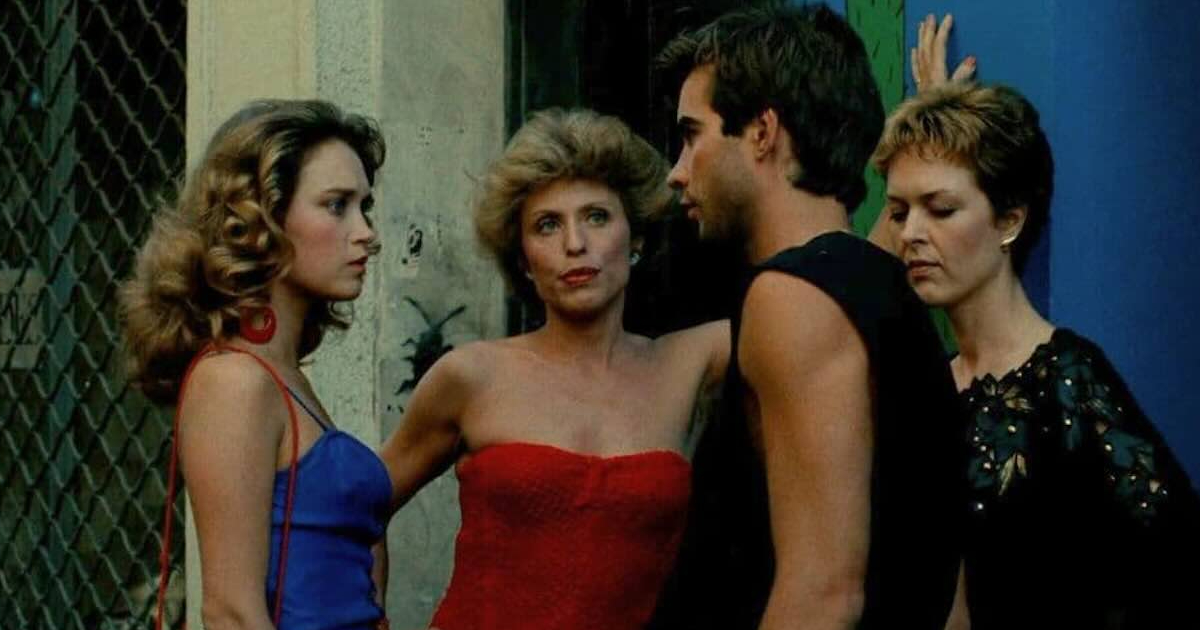
It may be a cliché, but in the case of Rosa la Rose, Fille Publique it’s inarguably true that not all performances are made equal.
Now playing at The Metrograph in New York City (in a glorious new 2K restoration I might add), Rosa la Rose stars the luminous Marianne Basler as the titular Rosa, a freshly 20-year-old prostitute working the streets of Paris with the unassuming confidence of a truly alive young woman. Living neither a glamorous nor miserable life, Basler as Rosa is self-assured, independent and fiercely charismatic, a Madonna of the night, to be honest.
Most of Rosa’s story finds her in the orbit of Julien, a mechanic played with quiet beauty by one Pierre Cosso. The film, again, never leans into the misery that’s typical of these types of stories, instead opting for a rather sharp, incredibly theatrical deconstruction of class and how love and capitalism are often at rather violent odds, especially for women and their relationship to both of those concepts. It’s an affair made of equal parts awkwardness and tenderness, the class and social tensions at the heart of their connection really add an exciting and vital depth to the narrative.
This all being said, the film’s director may be as big of a discovery for those coming into this blind. Often left on the outskirts of the larger French New Wave conversation, Vecchiali’s direction here feels like an absolute lightning bolt for someone new to his work, like admittedly myself. Very strongly in conversation with 1930’s France, both in the way it portrays 1980s Paris and the influences inspiring those decisions, Rosa la Rose feels entirely of another time and world. Theatrical in its staging and almost ballet-like in the way bodies flow in and out of this world, this energy is front and center from the very beginning, with one of the film’s many bravura sequences kickstarting the film.
Not only does the film announce itself with “LES FILMS DE L’ATALANTE presentent” (as if the subsequent film didn’t make it crystal clear who was on the mind of its director, but it’s dedicated to “Danielle Darrieux et Max Ophuls” and “Dora Doll et Jean Renoir” (as well as Didier Albert) and the opening threesome sequence that really jumpstarts the film feels ripped out of the time periods all four of them were essential to.
And yet, it feels (grossly) timeless in a way, particularly in the gender dynamics at play. There’s a startling scene here where Rosa is talking to the strikingly charming Julien (seriously, Pierre Cosso is almost cosmically handsome here, it shouldn’t be allowed) who, once his advances are spurned, turns around and blames her dignity for her actions. This is both in keeping with the larger class conversation, sure, but it’s also very much a still-thriving notion that it’s okay for a woman to be treated with disgust if they don’t bend to a man’s advances. This is a biting piece of satire writ-large, but it’s in these seemingly quiet, tossed away asides where the petty bullshit men (or more so people in positions of cultural power) get into feels at its sharpest.
Ultimately a fable of sorts, there’s a lyrical melancholy permeating Rosa la Rose, punctuated by its titanic lead performance and a director shooting a film like his life depends on it. It’s also a feat of the under-the-line talent as well. Roland Vincent’s score is delicate and boundary-pushing and Georges Strouve’s cinematography, from the first startlingly blue frame defies expectations. It’s a love letter to 1980’s Paris, but one that views the city through a dream-like lens, and at moments it feels like a Golden Age musical in ways that are truly jaw-dropping.
Rosa la Rose is now playing the Metrograph, and the new 2K restoration is an absolute delight. It sounds incredible and looks even better. It’s a triumph. One of the great films.



